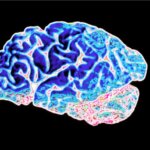In Nature Medicine, researchers tested the use of a new experimental treatment for patients with fragile X syndrome, a known genetic causal factor of autism.
Known as BPN14770, the experimental treatment completed a phase 2 randomized, placebo-controlled trial involving 30 participants in early and mid-adulthood.
“This phase 2 trial was a 24-week randomized, placebo-controlled, two-way crossover study in 30 adult male patients (age 18–41 years) with FXS. Participants received oral doses of BPN14770 25 mg twice daily or placebo,” the study says.
“Primary outcomes were prespecified as safety and tolerability with secondary efficacy outcomes of cognitive performance, caregiver rating scales and physician rating scales.”
“Results from this study using direct, computer-based assessment of cognitive performance by adult males with FXS indicate significant cognitive improvement in domains related to language with corresponding improvement in caregiver scales rating language and daily functioning,” the study concluded.
The study was authored by Elizabeth M. Berry-Kravis, Mark D. Harnett, Scott A. Reines, Melody A. Reese, Lauren E. Ethridge, Abigail H. Outterson, Claire Michalak, Jeremiah Furman, and Mark E. Gurney.


